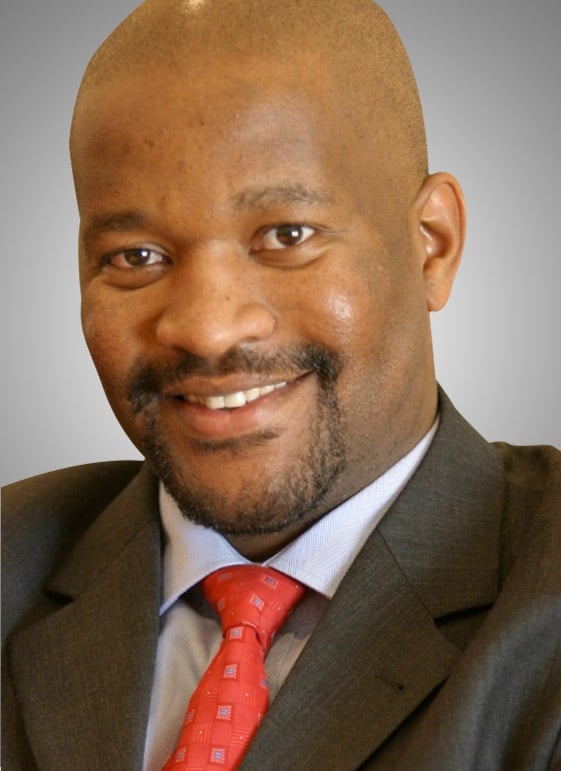
There was no governance or economic principle that justified the head of the Public Investment Corporation being headed by a politician, Vuyo Jack said on Monday.
Jack – a chartered accountant as well as founder and executive chairman of black economic empowerment verification agency Empowerdex – was testifying at the Commission of Inquiry into allegations of impropriety regarding the Public Investment Corporation (PIC) in Pretoria.
It is the tradition of the PIC, which manages more than R2 trillion on behalf of major state clients such as the Government Employees Pension Fund, that it has the deputy minister of finance (Mondli Gungubele) as its chairperson.
“When we look at the history of why the deputy minister of finance was the chairperson of the PIC ... it was more from the pragmatic perspective. There is no principle – no legal principle. There is no economic principle that supports that the deputy minister of finance should be chair of the PIC,” Jack said.
He is a former PIC board member and served in that a capacity from December 2012 to November 2015.
“Because something is a tradition and over the years it has been accepted,” he said.
“When you are looking at the risk that government is facing – you need an independent person to safeguard those investments with a mandate that is not clouded by any political moves will ensure you are able to safe guard that risk is facing. By putting in a political chair it does as acerbate the risk.”
“In short, I do not see any reason from governance principle, from an economic principle that this position would enhance the governance and enhance the returns.”
Raising tensions
In August 2013, Deloitte commissioned a survey of 134 PIC staff to survey working conditions due to “raising tensions” within the state fund manager in particular in the various PIC sub-committees and executive committee.
Some of the key findings of the Deloitte survey were as follows: the PIC had a culture of fear, no unity, a lack of strategic direction, management did so by fear and there was poor people management, management did not have employees’ best interest at heart, there was blame-shifting and poor decision-making abilities.
Also in 2013, KPMG was commissioned to review the PIC’s governance.
“The KPMG engagement letter was signed in January 2014 and their budget amounted to R866 000 excluding valued-added tax,” Jack said.
However, Jack later recommended to the PIC board that the budget for the KPMG work be up to an amount not exceeding R2 million.
As a result of the Deloitte survey, the PIC conducted staff sessions due to concerns about tensions within the state fund manager. These sessions started in March 2014.
“These sessions were not easy as there was a pervasive atmosphere of fear amongst staff in speaking out on the pertinent problems faced by the PIC,” he said.
“The sessions were quite a hit with the staff to the point that some exco members weren’t happy with the energy that was unleased as a result of these sessions. As a result these sessions were terminated permanently without credible motivation to myself or the board,” Jack said.
The governance review contributed to the unhappiness by some board members, he said.
“Management can be defensive about the concerns,” Jack said.
However, members of the PIC executive committee, in particular Dan Matjila [at the time PIC chief investment officer] and Matshepo More [PIC chief financial officer at the time], found these sessions uncomfortable.
On the other hand, PIC chief executive at the time, Elias Masilela, “thoroughly enjoyed” the sessions.
As a result of the concerns raised by the PIC executive committee the sessions were halted. Jack said that this halt to the staff sessions shocked the PIC board.
He said the history of tension at the PIC could go back to when Brian Molefe was chief executive of the PIC. Molefe was PIC chief executive from 2003 to 2010.
“Those tensions started simmering since them,” he added.
These tensions created an environment where people at the PIC were watchful about “who might stab you in the back”, Jack said.
Jack said that leadership at the PIC was conducted by fear.
In addition, the leadership style was very rigid and required rules, processes and procedures to be followed.
Staff at the PIC had to “follow the rules to the T”, he said.
“In March 2014, we kicked started the interview sessions. These sessions weren’t easy as there was a pervasive atmosphere of fear among staff about speaking out on the pertinent issues faced by the PIC. They feared intimidation and revenge.
“These sessions were really, really tough … Some people cried as they relayed their experiences within the PIC,” Jack said.
The government review report put together by the PIC board came up with the following findings:
rudimentary delegation of authority, weak and unaccountable leadership, dereliction of fiduciary duties by the PIC executive, suspicion and polarisation, misaligned and principal agent relations, weak monitoring and accountability as well as low specificity and oversight of deals.
Matjila boycott
Jack said that Matjila raised concerns at the level of the PIC board about the methodology of the PIC governance review process.
“However, he neither attended any of the sessions conducted nor did he honour meeting requests sent to his office. He also hardly attended workshops where governance issues were tabled,” Jack said.
“Despite cancellations and rescheduling of the engagements with some staff, we ended up meeting with all the critical divisions within the PIC with the exception of Dr Dan Matjila,” he said.
Pravin Gordhan, who was finance minister at the time, said the state of affairs of the PIC was “an emergency” that needed to be dealt with and rectified as soon as possible.
Jack described this situation as being one where there were “constant battles” that were taking place within the PIC.
Jack spoke about his relationship with Matjila: “It’s always been very cordial and he has been accessible. We have met him on other occasions for example to deal with the broad based black economic empowerment issues ... We never had any confrontation.”
Jack said he had “no clue” why Matjila didn’t cooperate with the governance review.
“I am not persuasive enough – a personal issue. I have no idea why I was not able to engage with him. I don’t have a reason why.”
One aspect of the PIC that Jack identified was that “people were chasing the number of deals regardless of the quality of the deals”.
Ultimately, Jack lost faith in the PIC.
“The Stalingrad approach elements were evident in the situation and are usually meant to drain one’s energy until one gives up. I lost interest in the PIC at some point due to the effective Stanlingrad strategy [This is a strategy of wearing down someone] used by PIC executives and the inability of the chairs and shareholder representatives to bring them to account.
“The bottom line was that I could not rely on the escalation processes to deal with the issues due to the lack of ability to bring accountability to the executives of the PIC… This claim is based on the fact that through all work done I was never able to get anyone to bring [Matjila] to account and give his insights into the investment decisions under this watch,” Jack said.




 Publications
Publications
 Partners
Partners








